View all Ministers
View all Portfolios

OPENING OF CHRISTCHURCH GRADUATE SCHOOL OF EDUCATION
- Wyatt Creech
Introductions
I am very pleased to be here to officially mark the opening of the new Christchurch Graduate School of Education. I realise this is a somewhat delayed opening - commitments involved in the election campaign got in the way last year!
Your first intake of primary teachers is near to graduating and you now have a secondary group as well - so this is a celebration of several achievements.
I am advised that this College takes an innovative approach to teacher training. You take advantage of your smaller size by responding to the individual needs of students, and follow them closely through their training. Many new teachers tell me, as I travel around New Zealand, of the importance of the practical side of their training. Often they tell me they think their course somewhat overlooked the importance of this element of their training - I have been surprised by the number who have told me that.
Your system of personalised assessment and supervision of trainees on section should help establish that your students have what it takes to be well-rounded teachers. Ideally all will graduate with that X factor that really gets through to students.
Education in New Zealand has been changing and developing - more especially over the past 10 years. These changes reflect changes in society, in labour markets, in technology, and our increased exposure to other cultures.
There have been significant reforms in the curriculum, assessment and qualifications - and a broadening of education opportunities for all learners. We're starting to lose some of the old divides - between senior school and polytechnic or between education and training.
Curriculum and qualifications have been continual talking points - with some divisions of opinion about as wide as the Canterbury Plains. Not only are they wide, they are often quite dismissive of all opinions other than their own. Yesterday I released a green paper on the national qualifications framework. It canvasses the whole range of qualifications issues and draws together some of the divisions. It's important that we develop a system of qualifications for NZ that's durable, credible, acceptable to teachers, students, parents and employers, and offers true learning opportunities for all. The ideas proposed in the green paper should meet those objectives.
These 'green papers' are part of our wider effort to implement an effective consultation process on major reforms. All interested in the particular subject are invited to read it and make submissions. These will be carefully considered. After that analysis, we will then make decisions which will be published in a 'white paper' - essentially a clear statement of government policy on the subject.
Returning to curriculum and qualifications changes. These do not alone guarantee achievement for the students who are at the heart of our education system. Their success also depends on their attitude towards learning, and way they are taught. A lot of that depends on the way teachers teach, and this flows back to the way they themselves learn their professional skills and are supported throughout their careers.
Colleges like this and other teacher education providers are there to build the quality of the teaching profession. Their performance is an essential part of lifting New Zealand's educational achievement. It's heartening to see providers responding to change already.
The Coalition Agreement commits us to a comprehensive review of teacher pre and in-service training this year. It will involve an analysis of all aspects of teacher education. Inevitably it will involve considerations of what the teaching profession should be like to serve the purposes of the young people of New Zealand as we move into the 21st Century. Information is being gathered at present - the resulting green paper will retain the positive aspects of existing teacher education, outline our thinking on the issues, and propose a way forward.
One of the much talked about issues the review will cover is ensuring we have all the teachers we need over the next ten years and on, without compromising quality. We want to be sure that high-quality pre-service teacher training is being consistently delivered; and that there is a better match between supply and demand.
The review will also cover the ongoing professional development of teachers during their careers. Education has changed a lot over recent years, and more school management decisions are being made at the school level. This requires different skills. This applies too to those who aspire to school leadership. The profession needs to be supported in the management of change - because society is going to be changing even more rapidly over the coming years.
Like it or not, schools now have to deal with social as well educational issues. What's happening around us is graphically, if not always accurately, documented in our news media every day. Family breakdown, abuse, dishonesty, lack of self-discipline. For some students, school is the most 'normal' place they have. I should stress that schools do not invent these problems, but being in society they cannot avoid them coming through the gate.
Schools have to somehow engage young people in learning because education is what will give them the chance for a reasonable life next century. Schools also show young people how to interact with others, and how to conduct themselves. Education helps provide the ability to cope with the new world; attitude gives the self-confidence and determination to succeed.
It puts a large responsibility on teachers. We recognise that, and are working on ways to support teachers in this 'social' as well as educational role. What teachers do has a huge effect on our future. We can all recall teachers we found inspiring - and others who we blame for making a subject boring.
I can still remember a couple of occasions from my own school days. One was getting the strap on my first day - outlawed now I'm happy to say. And the other involved the forbidden activity of climbing a nearby sycamore tree at playtime and filling my pockets with seed 'aeroplanes'. I started distributing them to the other kids during class - and of course was caught in the act. It could have been nasty - but our teacher simply confiscated the 'aeroplanes', used them to give an impromptu lesson on elementary physics and biology, then gave me the task of finding out more by next day.
That was a teacher who captured imagination. He taught us to make finding out an adventure - and to behave in acceptable ways. For most of you here I imagine it's that opportunity to make a positive difference to children's lives which has drawn you into teaching.
The Budget at the end of this month will begin the process of addressing many of the issues I've talked about. Education, support for teachers and schools, equality of opportunity and support for families and communities will be strong themes. This Budget is the start of a three-year plan that will build confidence and make the changes that matter in Education.
As Lyndon Johnson once put it: "Education is not just a luxury permitting some an advantage over others. It is a necessity, without which a person is defenceless in this complex society."
I wish the Christchurch Graduate School of Education and its students every success.
- Understanding the NZQF
Qualifications
- Recognition of Overseas Qualifications
- Consistency of graduate outcomes
- Approval, accreditation and registration
- Assessment and moderation of standards
- Qualifications and standards
- Māori and Pasifika
- international
- Consultations and reviews
- Publications
- Information regarding COVID-19
- Future State
- Working at NZQA
- Make a complaint
Organisations >> NZQA - New Zealand Graduate School of Education Limited
Contact details.
| Contact | Doctor Kevin Knight |
| Address | PO Box 36 625 Merivale Christchurch 8146 |
| Phone | 0064 3 377 8390 |
| Website | |
| Education Organisation number | 8327 |
| Education Organisation location | 1 |
Delivery Sites
| Name | Street Address | Contact Number | ||
|---|---|---|---|---|
| New Zealand Graduate School of Education Limited | Christchurch (8327/1) | Level 1, 826-828 Colombo Street, Christchurch Central, Christchurch 8013 | 3 377 8390 | View site specific |
| New Zealand Graduate School of Education Limited | Christchurch (8327/2) | Level 1, 826-828 Colombo Street, Christchurch Central, Christchurch 8013 | 3 377 8390 |
| This organisation can assist in gaining . |
Degrees, Programmes and/or Training Schemes
Registration
| Date first registered with NZQA | 01-05-96 |
External Quality Assurance
| External quality assurance report history |
|
| Current status | 26 May 2021: NZQA is Highly Confident in the educational performance of New Zealand Graduate School of Education Limited 26 May 2021: NZQA is Highly Confident in the capability in self-assessment of New Zealand Graduate School of Education Limited |
| Provider Category | 1 |
Statutory Actions
For more information on statutory actions on any education organisation click here .
Disclaimer: conditions of use .
- newzealand.govt.nz Copyright © New Zealand Qualifications Authority | About this site | Copyright
Private Training Establishment

Postgraduate Diploma in Teaching (Secondary)
This course is available
Level of Study
Graduate Certificate or Diploma
120 credit hours
Next start date
Expected Jan 2025
New Zealand Graduate School of Education
Successful graduates from NZGSE’s teacher training programmes are awarded either a Postgraduate Diploma in Teaching (Primary) or Postgraduate Diploma in Teaching (Secondary). The diploma is based on international knowledge about how teachers are best trained and includes some important features that will ensure your training fully prepares you for the realities of teaching.
School-based
Teachers around the world confirm that it was their experience in schools that was the most successful part of their training.
At NZGSE we agree with this view so two thirds of your time will be spent working in schools. This more extensive school based training will give you greater opportunity to practise teaching and increase your confidence. The longer time in schools will allow you to experience real teaching. You will not be in schools to watch. You will be there to teach and you will be given proper responsibility for young peoples’ learning.
The NZGSE tutors work alongside the teacher interns while they are at schools. This allows us to give you immediate relevant coaching and feedback.
School Settings
NZGSE offers a variety of training settings so that teacher interns can work with a range of children with different learning needs and from different social backgrounds. The schools we use include children from the full range of socioeconomic levels and ethnic groups in Christchurch. Information about the training settings is included in the Host Schools sheet.
Flexible Programme Length
The NZGSE programmes offers you a challenge: work harder and you can complete the diploma earlier.
We know that some people learn quicker than others and we believe that your training should allow for this. If you can learn faster than other teacher interns you will not be made to wait for them. When you can demonstrate your ability to teach in a range of settings, and show that you have all the competencies of the programme, we will award you the diploma. You can apply for a teaching job and start earning a salary.
The NZGSE programme lets you plan a pathway through the assessment tasks so that one complex activity can be assessed simultaneously against several teacher education standards. You are encouraged, with the assistance of your tutors, to undertake more complex activities involving many concurrent tasks. You will experience the reality of teaching even sooner.
Programme Structure
NZGSE’s postgraduate diplomas in teaching are based on a set of competencies developed at NZGSE. These competencies go well beyond the minimum level of competency for graduating teachers required by the Teaching Council of Aotearoa New Zealand.
Entry criteria
Applicants must have a degree to be considered for entry to our programmes.
If you have an overseas degree, you will need to arrange for the New Zealand Qualifications Authority (NZQA) to assess your qualification. This will normally need to be done before we process your application.
Competency in English is an important selection criterion, even for applicants who speak English as their first language. Mastery of spoken and written English is imperative for any person working in New Zealand schools. The Teaching Council lists these as options, together with the results you would need to achieve.
- IELTS Academic: Overall score of 7
- Cambridge English exams (C2 Proficiency (CPE) or C1 Advanced (CAE) or Cambridge English exams B2 First (FCE)): Minimum of 185
- Pearson Test of English (PTE) Academic: Overall score of 65
- TOEFL Internet-based test (iBT): Minimum of 94, Listening: 24, Reading: 24, Writing: 27, Speaking: 23
Studying in NZ
Share this course
- Our campus and environment
- Campus maps
- Sustainability Hub
- Canterbury University Press
- Donating to UC
- Partnering with UC
- Corporate information
- Our structure
- Our rankings
- Getting started
- Admission and enrolment
- Study costs
- Qualifications
- Study support & information
- Scholarships
- Engineering
- Academic study options
- Transition programmes
- UC Graduate School
- Other study options
- School & community outreach
- Support and wellbeing
- Accessibility
- Accommodation
- Communities and clubs
- Financial support
- IT logins and tools
- Careers for students
- Safety and security
- Sports, fitness and recreation
- Student ID | Canterbury Card
- Student life
- Sustainability
- About UC's research
- Doing research at UC
- IP and commercialisation
- Research facilities and equipment
- Research and Innovation
- Research groups and centres
- Research specialities and projects
- Field stations
- eResearch at UC
News and Events
Rongo o te wā.
- Regular events and celebrations
Future students
Current students, international students.
- Postgraduates
- open_in_new UC Online

Graduate Diploma in Teaching and Learning
UC's Graduate Diploma in Teaching and Learning (GradDipTchgLn) provides an opportunity to learn about teaching, learners, and the curriculum. Find out about studying a GradDipTchgLn through our Te Kaupeka Ako | Faculty of Education.
Introduction
Teaching is a career for people who are energetic, creative, enjoy working with people, and are committed to making a positive difference for children and young people.
The Graduate Diploma in Teaching and Learning gives you the opportunity to gain knowledge of teaching, learners, and curriculum; engage in professional practice in schools; and become part of the teaching profession in Aotearoa New Zealand.
You will be able to hone skills such as communication, critical thinking, planning and design for learning, and develop bicultural competence so that you go on to become an attentive and adaptable educator who meets the needs and aspirations of all learners.
What will my study involve? keyboard_arrow_down
What will my study involve.
- Future-focused learning in curriculum areas and a commitment to bicultural practices in Aotearoa.
- Multiple placements in schools and communities where you will be able to engage with children and young people.
- Flexibility to study on campus in Ōtautahi Christchurch, or by distance (Primary Education only).
Entry requirements keyboard_arrow_down
Entry requirements.
An Aotearoa New Zealand bachelor's degree (or other qualifications of an equivalent standard) is required to apply for the GradDipTchgLn.
Applicants with knowledge and current work experience in the areas of technology and/or te reo Māori may be eligible to apply for the Secondary Education endorsement without a bachelor's degree through the Alternate Entry Pathway. There is a specific application process to assess eligibility.
Those entering the Secondary Education endorsement will need a body of knowledge from their previous studies in a subject relevant to the secondary school curriculum eg, te reo Māori, English, mathematics, chemistry, history, etc.
Selection for entry is based on:
- academic ability, involvement and interest in working with children and young people, community involvement, communication skills, and other dispositional and personal qualities as outlined in the Guide to Applying
- a police check, referees' reports, and an interview
- short online literacy and numeracy assessments.
If English is your additional language, you are also required to meet the requirements set out by Matatū Aotearoa | Teaching Council of New Zealand .
For the full entry requirements, see the Regulations for the Graduate Diploma in Teaching and Learning or use the admission requirements checker .
How to apply
Applications are open throughout the year and close 1 December for domestic students or 31 October for international students.
Applications for the Alternate Entry Pathway into technology and/or te reo Māori secondary teaching close 31 October .
For more details on entry requirements and the teacher education application process, see the Guide to Applying .
Degree structure keyboard_arrow_down
How do i plan my diploma.
The GradDipTchgLn consists of 150 points of coursework and includes 80 days of professional practice in schools.
Primary endorsement
The Primary endorsement pathway can be studied full-time in one year on campus or via distance. We also offer a part-time option over two years for distance students only. Distance students complete the same courses, coursework, and assessments as on-campus students.
Distance students are required to attend an On-site Intensive (OSI) in Ōtautahi Christchurch at the beginning of the programme. OSIs are a compulsory part of the distance programme and provide an opportunity to meet and work with course lecturers and other students. You will need continual access to a computer with suitable broadband internet to complete this qualification.
Secondary endorsement
The Secondary endorsement pathway can be studied full-time in one year. This is completed on campus, with the exception of selected students who are completing the alternative entry pathway in Technology and/or Te Reo Māori.
You are required to list at least one teaching subject in your online application. Confirmation of teaching subjects will be determined as part of the selection process and confirmed at the point of offer.
Alternative Entry Pathway in Technology and/or Te Reo Māori
Select students with suitable experience in Technology and/or Te Reo Māori can apply to study via distance or on campus. See more about this Alternate Entry Pathway.
For full requirements, see the Regulations for the Graduate Diploma in Teaching and Learning .
Fees keyboard_arrow_down
2024 tuition fee estimate: $8,435 per 150 points 2025 tuition fee estimate: to be confirmed
International
2024 tuition fee estimate: $31,500 per 150 points 2025 tuition fee estimate: $33,000 per 150 points

Additional costs
Students pay a Student Services Levy (SSL) at a rate of $9.17 per point of study in 2024 ($1,100.40 for 120 points). 2025 SSL is yet to be set.
International students must have insurance while studying at UC. Studentsafe insurance is $810 per year of study in 2024.
Domestic tuition fees
International tuition fees
Student Services Levy (SSL)
Insurance for international students
Funding your study
Subjects and courses keyboard_arrow_down
Subjects and courses, compulsory courses.
All students for the GradDipTchgLn complete the following:
- TEPI313 Professional Learning and Inquiry 1
- TEPI314 Professional Learning and Inquiry 2
- TEPI315 Understanding Every Learner: Intercultural and Inclusive Education
- TEPI316 Tō tātou reo, ā tātou tikanga
- TEPP313 Teaching Professional Practice 1
- TEPP314 Teaching Professional Practice 2
Primary Education endorsement
Students in the Primary endorsement also complete the following:
- TECP323 Literacy and Mathematics for Primary School Teaching
- TECP324 Curriculum 2: Teaching and learning in, through and about Health and Physical Education and the Arts
- TECP325 Curriculum 3: Exploring Science and Technology through Collaborative Design
- TECP326 Curriculum 4: Learning Languages and Social Sciences in Diverse School and Community Settings
Secondary Education endorsement
Students in the Secondary endorsement also complete the following:
- TECS333 Curriculum, Pedagogy and Assessment 1: Teaching subject for junior secondary
- TECS334 Curriculum, Pedagogy and Assessment 2: Teaching subject for senior secondary
- TECS335 Curriculum, Pedagogy and Assessment 3: Contemporary developments in secondary education
Those under the Alternate Entry Pathway will take these courses instead of the above.
Secondary Education — specialist teaching subjects
For our secondary teacher qualifications, you will need to choose a teaching subject and have an academic background in this subject. Your teaching subject is chosen from those taught at junior and senior secondary levels.
You will focus on your specialist teaching subject (which you will preferably have studied to 300-level). It is also a good idea to pick up an additional teaching subject, for which you have a background of study to 100 or 200-level (depending on the subject).
We offer the following specialist teaching subjects:
- Biology with Science
- Classical Studies with Social Studies
- Chemistry with Science
- Commerce with Business Studies
- Geography with Social Studies
- Health with HPE
- History with Social Studies
- International Languages
- Mathematics
- Outdoor and Environmental Education with HPE
- Performing Arts
- Physical Education with HPE
- Physics with Science
- Te Reo Māori
- Visual Arts
Secondary Education — additional subjects
For our secondary teacher qualifications, you will also need to choose an additional teaching subject, for which you have a background of study to 100 or 200-level (depending on the subject).
Additional teaching subjects are usually junior subjects (years 7—10), these include:
- Business Studies
- HPE (Health and PE)
- Social Studies
Additional senior social sciences subject are only available where junior Social Studies is already part of your specialist teaching subject:
- Geography Yrs 11—13
- History Yrs 11—13
- Classical Studies Yrs 11—13
Additional senior Health, OE, and PE subjects are only available where junior HPE is already part of your specialist teaching subject:
- Health Yrs 11—13
- Outdoor and Environmental Education Yrs 11—13
- Physical Education Yrs 11—13
Additional senior sciences subjects are only available where junior Science is already part of your specialist teaching subject:
- Biology Yrs 11—13
- Chemistry Yrs 11—13
- Physics Yrs 11—13
To specialise in any of the above teaching subjects, you will need to take one of:
- TECS336 Curriculum, Pedagogy and Assessment 4: Additional teaching subject for junior secondary
- TECS337 Curriculum, Pedagogy and Assessment 5: Additional teaching subject for senior secondary
If you do not have the background for one of these additional teaching subjects, you can take one course from these options , or an approved course elsewhere at UC.
If you are in the Alternate Entry Pathway and do not have an additional teaching subject, you will instead take TECS347 .
Further study keyboard_arrow_down
Further study.
You may choose to go onto postgraduate studies which further examine the role of teaching in children's lives and the ways and methods in which they learn, or critically analyse educational policies and systems of practice.
- Master of Arts (Thesis) in Education
- Master of Education
- Master of Education (Thesis)
Careers keyboard_arrow_down
Career ready.
- You will gain transferable skills like management, communication, responsibility, and organisation.
- Graduates have gained positions throughout all levels of schooling in Aotearoa.
- Meet Matatū Aotearoa | Teaching Council of New Zealand graduating teachers’ standards requirements and are eligible to apply for registration as a teacher in Aotearoa.
Useful information:
- Read what other UC postgraduate students have gone on to achieve in their studies and careers in our student stories .
- Te Rōpū Rapuara | UC Careers can help you to achieve the career you want, connect with employers, or find a job.
- For research into career destinations by qualification, visit Te Pōkai Tara | Universities New Zealand website .
- Find out more about what can you do with a degree from UC .
- Come along to an upcoming information event for prospective postgraduate students.
Example degree structure diagram
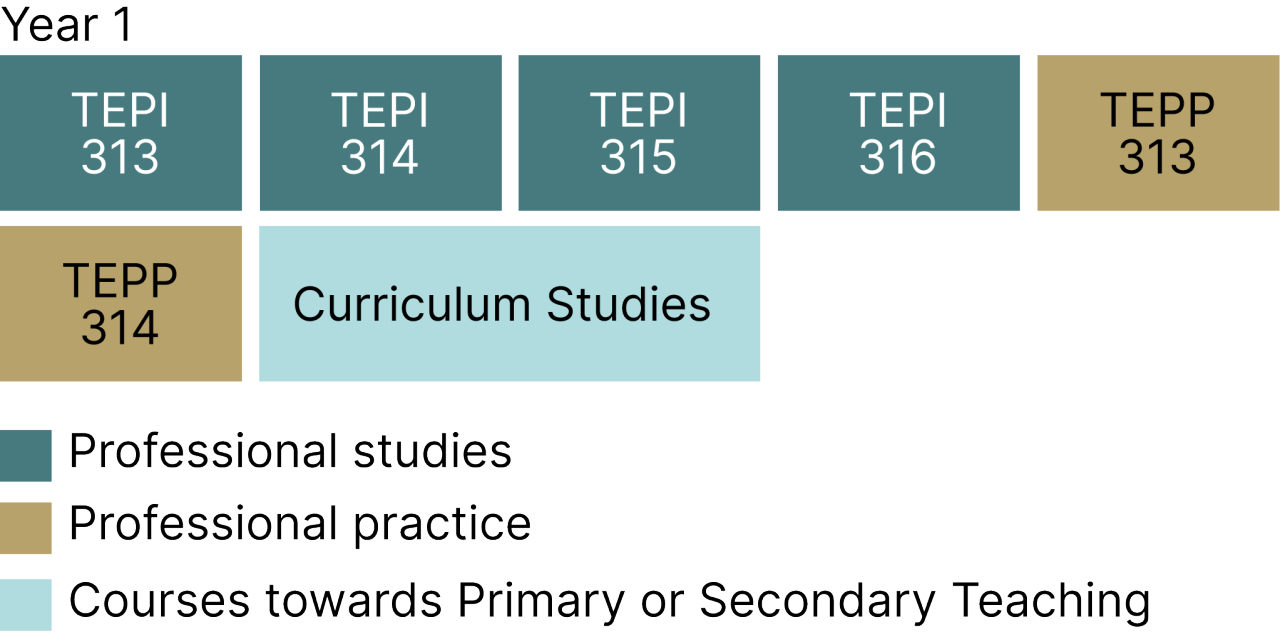
Each block represents a 15-point course. However, some courses may be 30 points or more.
This diagram is an example only – other combinations are possible. For specific course requirements, see the Regulations for the Graduate Diploma in Teaching and Learning .
Postgraduate Prospectus 2024
Whakatairanga tāura, international prospectus 2024/2025.
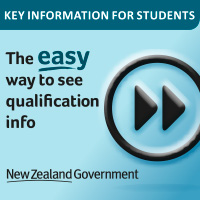
Student stories
Clint rissmann, 20 july 2023.
'My favourite part is finding real world, cost effective solutions to improving water quality...'
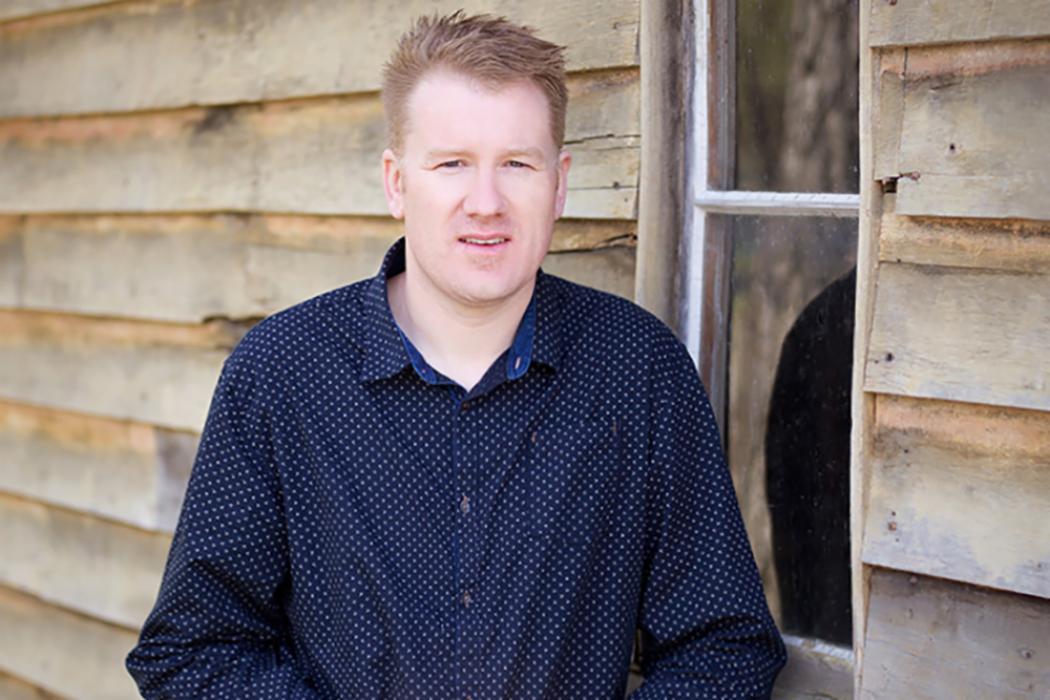
Jessica Clarke
"I think living in a hall of residence gives you the opportunity to make endless friends..."
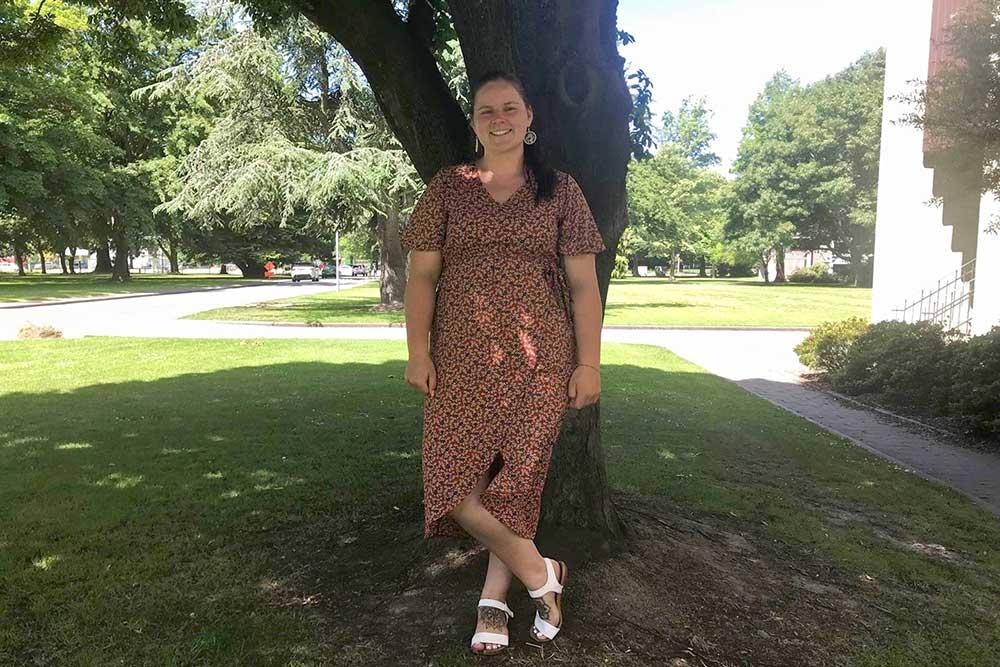
Matt Vannoort
"I get to shape the lives of young people and help them discover how amazing chemistry is..."
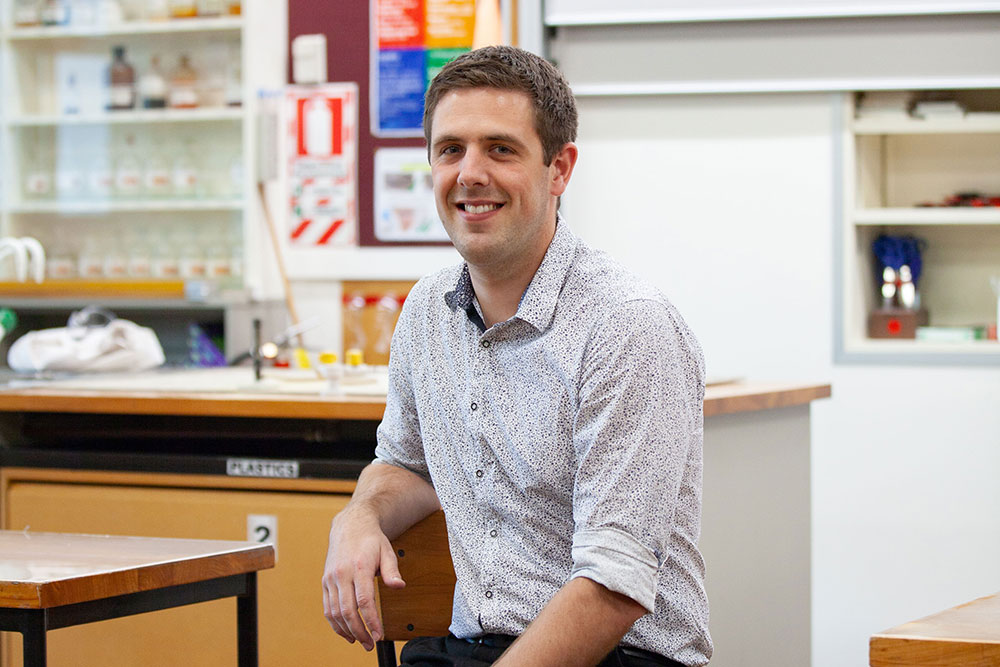
Casey Davis
"My teaching philosophy is built around my own values and experiences. Basically, I don’t see myself as a superior in the classroom, I see myself at the same level as the students."
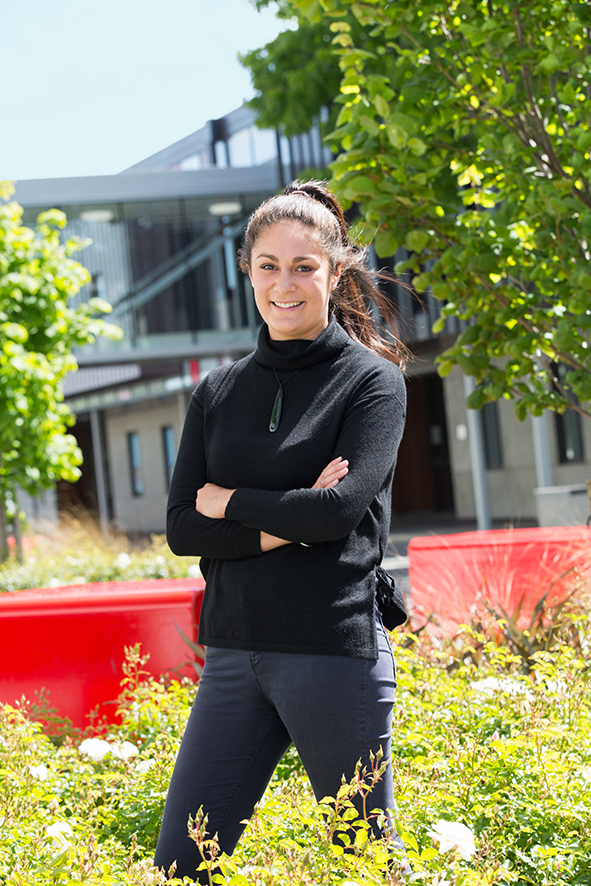
Georgia Guilford
"With technology, we make a point of teaching the fundamental skills behind what kids are learning."
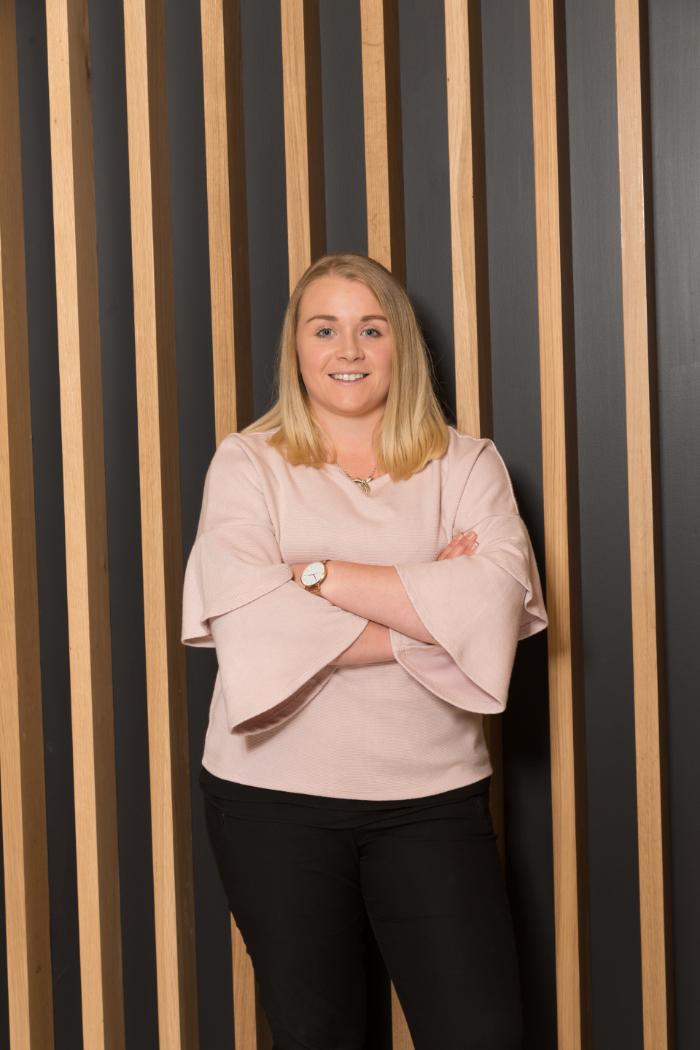
Quynh Nguyen
"I believe it was one of the best decisions I have ever made..."
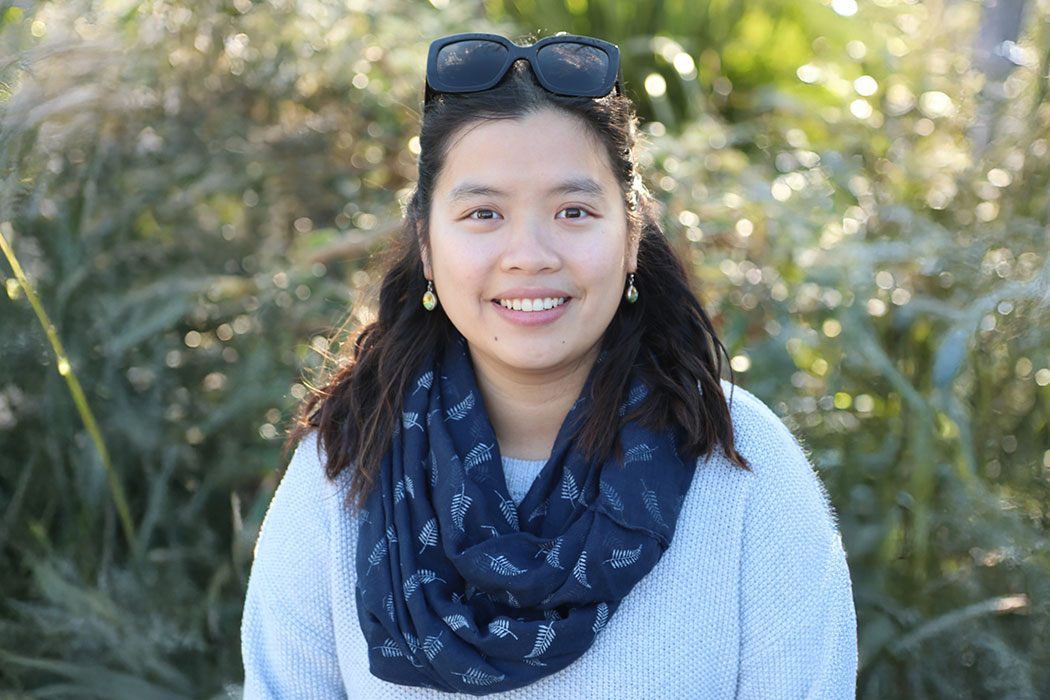
By clicking "Accept All Cookies", you agree to the storing of cookies on your device to enhance site navigation, analyse site usage, and assist in our marketing efforts.
General enquiries
0800 827 748 (within NZ) +64 3 369 3999
info@canterbury.ac.nz
International enquiries
+64 3 364 3443
Ask a question
More contact details
See all contacts
Emergency contact details
Ext: 92111 (from a campus landline) Direct dial: 0800 823 637
Emergency information
University of Canterbury | A Fair Trade University
- Skip to primary navigation
- Skip to main content
- 110 Baker St. Moscow, ID 83843
- 208.882.1226
A Classical & Christ-Centered Education
DISCOVER LOGOS
Plan your visit and see all that Logos School has to offer. Visit Logos
Serving families on the Palouse with a Classical and Christ-Centered Education for over 40 years
“Our mission at Logos School is to provide a Classical and Christ-centered education in order to graduate young men and women who are equipped to shape culture through wise and victorious Christian living.”
Members of the Logos School faculty understand that theirs is a high calling. They go beyond ordinary expectations in their efforts to instruct and inspire students and faithfully commit to embodying a set of core promises to our families. These core promises include:
- Modeling the Christian life
- Encouraging students in their walk with the Lord
- Pursuing academic excellence
- Inspiring students to develop a love for learning and wisdom
- Teaching from a biblical worldview
- Providing an orderly and safe atmosphere
- Insisting upon graciousness in all interactions
- Embodying excellence
- Demonstrating servants’ hearts and laboring in harmony
Caring for Families (Mark & Kristin Beauchamp)
Logos stories.
Stories from Logos families students, graduates, and alumni. View All
I want Logos to be here for my children and grandchildren (Rod & Jenny Story)
This education is incredible (luke mason, drew pilchard, boden lloyd), building on a christian worldview (wes struble), flourishing at logos school (chet & kat hervey), investing in souls (bekah merkle).

IMAGES
COMMENTS
NZGSE offers a range of school improvement services based around NZGSE's 8People model of teacher practice. They include professional learning and development courses, training of mentors, appraisals of teachers and principals, school reviews and international consultancy. These services are designed to help trained teachers and school ...
New Zealand Graduate School of Education is a private teachers college in Christchurch, New Zealand that offers the following services: Teacher training for graduates School improvement services for trained teachers and school leaders.
Explore all courses offered at the New Zealand Graduate School of Education. Start your New Zealand education journey now.
New Zealand Graduate School of Education, Christchurch, New Zealand. 1,133 likes · 11 talking about this · 89 were here. University
Wyatt Creech. Education. Introductions. I am very pleased to be here to officially mark the opening of the new Christchurch Graduate School of Education. I realise this is a somewhat delayed opening - commitments involved in the election campaign got in the way last year! Your first intake of primary teachers is near to graduating and you now ...
School Settings NZGSE offers a variety of training settings so that teacher interns can work with a range of children with different learning needs and from different social backgrounds. The schools we use include children from the full range of socioeconomic levels and ethnic groups in Christchurch. Information about the training settings is included in the Host Schools sheet.
Request an application form Our next intake is: 22 July 2024 To request an application form enter your details below and one of our team will be in touch shortly. Name (required) First Name Last Name Email (required) Phone Country Number +64 Which programme will you be applying for? (required) Are you an international student? (required) How did you hear about us? (required)
New Zealand Graduate School of Education's first teacher training programme began on 1 October 1996 with a small intake of eight students training as primary teachers.
For the July 2024 intake at NZGSE, the tuition fees for domestic students are: Primary: For the whole Postgraduate Diploma in Teaching (Primary) $11,031. Secondary: For the whole Postgraduate Diploma in Teaching (Secondary) $8,540. (The fee for the Primary programme is higher because it a longer programme: 155 credits for Primary rather than ...
Location & Number. Street Address. Contact Number. New Zealand Graduate School of Education Limited. Christchurch (8327/1) Level 1, 826-828 Colombo Street, Christchurch Central, Christchurch 8013. 3 377 8390. View site specific degree & course accreditations. New Zealand Graduate School of Education Limited.
Primary and secondary teacher training, professional development for education and international consultancy
UC's School of Educational Studies and Leadership offers programmes and research to meet the needs of a wide range of interdisciplinary fields. Our research and teaching addresses early childhood, primary, and secondary school, tertiary education, adult, and community learning. Learn more about the School of Educational Studies and Leadership.
UC is a leading global research-intensive university, delivering research excellence with impact to make a positive difference for people and the planet. UC Graduate School offers study programmes and research support for postgraduate students.
Study Postgraduate Diploma in Teaching (Secondary) at New Zealand Graduate School of Education. Enrol Now!
Home Courses Graduate Diploma in Teaching (Primary) - New Zealand Graduate School of Education Limited
The Graduate Diploma in Teaching and Learning gives you the opportunity to gain knowledge of teaching, learners, and curriculum; engage in professional practice in schools; and become part of the teaching profession in Aotearoa New Zealand. You will be able to hone skills such as communication, critical thinking, planning and design for ...
Serving families on the Palouse with a Classical and Christ-Centered Education for over 40 years "Our mission at Logos School is to provide a Classical and Christ-centered education in order to graduate young men and women who are equipped to shape culture through wise and victorious Christian living." Members of the Logos School faculty understand…
130. open programmes in post graduate professional education and corporate learning programmes.
Each year, the opportunities for education in English at HSE University grow. They include 38 English-taught Master's programmes and nine English-taught Bachelor's programmes.
New Saint Andrews College is a private classical Christian college in Moscow, Idaho. It was founded in 1994 by Christ Church. [ 2] The college offers no undergraduate majors, but follows a single, integrated classical liberal arts curriculum from a Christian worldview in its associate's and bachelor's degree programs. The college also offers master's degrees in theology and letters and ...